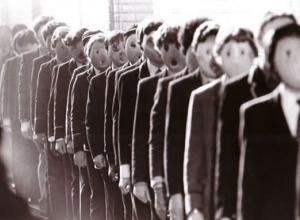Адказаць на каментар

System of higher education in Belarus has become a tool for political repressions against dissidents, as mentioned in the Statement.
We ascertain that systemic violations of human rights in Belarusian institutions of higher education anchor authoritarian rule inside the higher school, thus demonstrating the fact that heads of educational institutions fail to understand fundamental academic values: university autonomy and academic freedom.
Setting such values at defiance does not allow current system of Belarusian higher education to join the Bologna Process and become a full-fledged member of the European Higher Education Area (EHEA).
There is a direct connection between the “black list” and the denial by EHEA.
Mass media lately actively discussed the initiative of the Office for a Democratic Belarus (Brussels) on shortening the list of Belarusian citizens denied entry to EU countries. In particular, proposals were made to take heads of Belarusian universities off the list.
Belarusian Bologna Committee considers it necessary to state its attitude towards this initiative, as withdrawal of the names of Belarusian universities’ rectors from the entry ban list will have an immediate impact onto implementation of suggestions developed by the Committee regarding the process of involvement of Belarus into the European Higher Education Area.
The Belarusian Bologna Committee does not find the “black lists” of Belarusian authorities denied entry to the EU countries as a life-long sentence for organizers and implementers of repressive actions against participants of peaceful protest action, against politicians and civic activists. The aim of imposing such sanctions is not to take revenge, but to prevent further violations of citizens’ rights.
Those university rectors that were included into the list are responsible not only for unlawful expulsions of university students and dismissal of staff, but for repeated violation of rights of those who went through political repressions. Those who were charged with administrative liabilities, were further expelled from their universities or unlawfully fired - thus deprived of the right to get education or a job.
If assessing upon the legal criteria, this definitely bears an arbitrary character. Heads of universities that put such methods into practice totally deserve to be punished.
We don’t think that unconditioned exclusion of names from the entry ban list will help launch the process of higher school reforms and eventually lead Belarus to joining the Bologna Process.
The only prerequisite to get Belarus into the EHEA shall be reforms that shape not just the structure of Belarusian system of higher education (likewise, other technical issues), but the administrative system of managing institutions, academic rights of staff and students. The first step that would indicate that reforms had started would be cessation of political repressions, as well as of violations of academic freedoms in Belarusian higher educational institutions. Whether or not to take rectors off the “black lists” shall simply depend on the situation in corresponding university.
Belarusian Bologna Committee suggests that decisions about exclusion (and introduction) of particular names on the “lists” should be made upon a thorough monitoring of academic and civil rights in each university of Belarus.
The aim of such project will be not just to assess behavior of particular heads of universities, but to get reliable information about changes and progress made inside the system of Belarusian higher education in relation to fundamental academic values. This procedure is necessary to have the issue of joining EHEA come up in the next two years.
In cooperation with human rights organizations, we are planning to create a network of observatories in university centers of Belarus where information about the situation with academic rights in Belarusian universities will be collected; we will organize the work of the “academic tribunal” – a group of influential experts that will provide a qualified classification to each case of repressions; we will launch a legal clinic where victims of repressions will be able to receive assistance; we will distribute regular reports on situation with academic rights in Belarusian universities.
We believe that harmonizing the system of internal monitoring in Belarusian higher school with the European mechanism of sanctions will allow for more substantial and better grounded altering of the “black list”.
Belarusian Bologna Committee emphasizes that political decision-making on whether to include or exclude names shall be public and in done concord with the general democratic procedures.
To remind, Belarusian Bologna Committee was created with the aim of developing an integrative map for inclusion of Belarusian system of higher education into the Bologna Process. Representatives of the experts’ community and a range of Belarusian NGOs are among members of the Committee.

.png)
